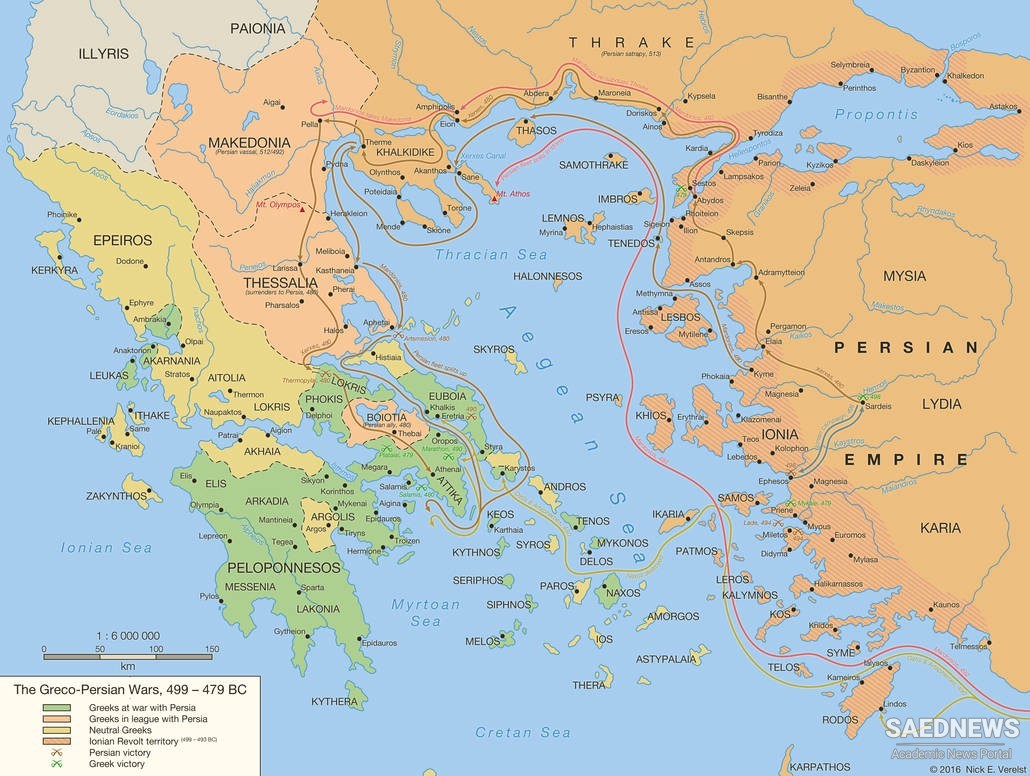In less than ten years, Alexander and his army overthrew an imperial system and crushed an international bureaucratic machine which had been in operation for over 200 years. The burning down of the royal palaces at Persepolis symbolized the end of an era and the beginning of a new one. We have no record of how the Iranians felt and what consternation they experienced when the towering structure of the Achaemenian state crumbled, and the people who had been the masters of the world became overnight subjected to foreign rule. One can only guess at the bewilderment and profound distress that the rout of the Persian army, the fall of the royal house, and the emergence of the Greeks as masters must have caused in the heartland of Iran. A faint echo of the people's dismay and the priests' outrage is found in the Zoroastrian Pahlavi literature, which remembers the "accursed" Alexander as the destroyer of fire-temples, the burner of the holy scriptures, and the murderer of the magi; the early Sasanian propaganda portrayed him as the annihilator of Iran's unity and power, the originator of the "petty kings system", and the author of many woes for Iran. The new masters, although familiar to the Persians through long periods of Greco-Iranian association, war, trade, and travel, were ethnically different, did not speak an Iranian language, practised a different religion, and held a different concept of government from that of the Iranians. But unlike the barbarian invaders from the northeast, the Greeks had a brilliant culture, with advanced techniques in military operations, art, and architecture, not to mention a system of government, many aspects of which fair-minded Iranians could envy. Their impact was one of far-reaching dimensions; it is seen at work during the Hellenistic period in Iran, which extends roughly from the foundation of the Seleucid dynasty almost to the end of the Parthian period and in some respects a little beyond. This impact, however, produced in Iran a result differing from that in Syria, Asia Minor, and Egypt. Hellenism in these countries had a full flowering and spread a new form of culture; in Iran it remained only an influence - albeit a strong one. In other words, Iran did not lose its basic identity and did not abandon its own cultural traits, embodied above all in its religion. It soon attempted to pull away from the West, aspiring towards a selfassertion which culminated in the proud Sasanian nationalism and the exclusiveness of the Zoroastrian church.


 Ancient Persia and Historical Developments of Early Fourth Century B.C.
Ancient Persia and Historical Developments of Early Fourth Century B.C.














































